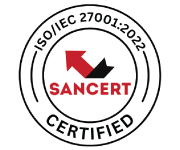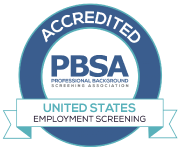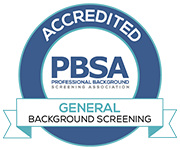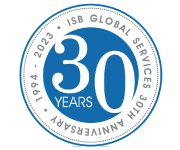See What's Trending In The Background Check Industry
What is the Difference Between a Background Check in the US and Canada?
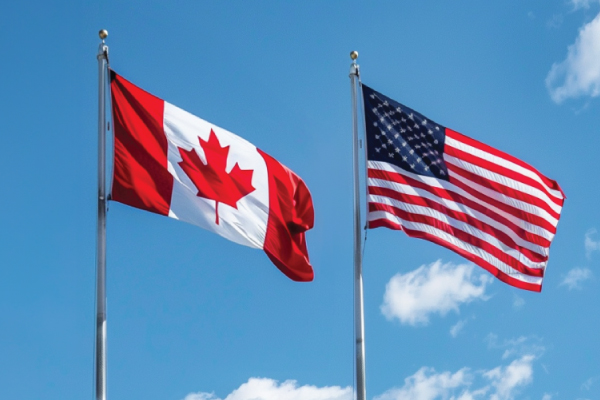 Understanding the nuances between background checks in the United States and Canada is crucial for businesses operating across these borders. While the goal remains the same—to verify the accuracy of an applicant's claims and identify potential risks—the processes, regulations, and scope of these checks vary significantly due to differences in laws and privacy concerns in each country.
Understanding the nuances between background checks in the United States and Canada is crucial for businesses operating across these borders. While the goal remains the same—to verify the accuracy of an applicant's claims and identify potential risks—the processes, regulations, and scope of these checks vary significantly due to differences in laws and privacy concerns in each country.
United States Background Checks: Comprehensive and Varied
In the United States, background checks are governed by federal laws, such as the Fair Credit Reporting Act (FCRA), which ensures the accuracy, fairness, and privacy of the information in consumer reporting agency files. Employers can conduct a wide range of searches, including criminal history, credit checks (with consent), employment history, and education verification. The use of Social Security Numbers (SSNs) is a common practice for identity verification, allowing for a comprehensive search of national databases.
The US also permits using certain databases, like the National Crime Information Center (NCIC), which provides access to millions of records. However, the depth of criminal history checks can vary according to each state, with some states allowing employers to see arrests that didn’t lead to convictions, while others restrict access to convictions only.
 Canada’s Approach: Privacy-Centric and Regulated
Canada’s Approach: Privacy-Centric and Regulated
Canada's background checks are tightly regulated to protect individual privacy. They are governed by federal laws like the Personal Information Protection and Electronic Documents Act (PIPEDA) and provincial laws like Ontario's Freedom of Information and Protection of Privacy Act (FIPPA). They are designed to balance the needs of employers with the rights of individuals. Canadian background checks typically include criminal records, credit history (with explicit consent), verification of education and employment history, and professional license verification.
Unlike in the US, the use of Social Insurance Numbers (SINs) for background checks is heavily restricted in Canada, making criminal checks less centralized and more dependent on consent and cooperation from the individual. Access to criminal records is generally limited to convictions where a pardon (record suspension) has not been granted, emphasizing rehabilitation and privacy.
Additionally, the Youth Criminal Justice Act (YCJA) significantly impacts how background checks are conducted in Canada. The YCJA is designed to protect the privacy of young persons who have been charged with a crime, emphasizing rehabilitation and reintegration into society over punishment. As a result, records of offenses committed by individuals under the age of 18 are usually not publicly accessible and are heavily guarded. These records are generally sealed and are not disclosed in standard criminal background checks, ensuring that youthful indiscretions do not unduly impact an individual's future employment opportunities.
In contrast, the US does not have a federal equivalent to the YCJA, and the treatment of juvenile records varies significantly from state to state. In some jurisdictions, juvenile records can be accessed for certain types of background checks, potentially affecting an individual’s employment opportunities long after the offense has occurred. This difference underscores a fundamental distinction in the approach to youth justice between Canada and the US, with Canada focusing more on privacy and rehabilitation and the US allowing for more variability in the accessibility of juvenile records.
 Key Differences
Key Differences
- Regulatory environment: The US has a broader approach to the types of information that can be included in a background check, while Canada focuses heavily on privacy protection and consent.
- Scope and depth: US employers can often access more comprehensive data, including certain types of non-conviction information in some states. In contrast, Canadian checks are more focused and require explicit consent for specific information.
- Credit checks: In Canada, credit checks are more regulated, requiring explicit consent, and they are typically only used for positions that directly involve financial responsibilities.
The Crucial Role of ISB Global Services in Background Checks
For businesses operating in both countries, navigating these differences can be challenging. ISB Global Services provides tailored solutions that comply with the regulations of each country, offering comprehensive background checks that meet the needs of multinational operations. Whether it’s conducting thorough criminal background checks, verifying employment history, or ensuring compliance with US and Canadian regulations, ISB Global Services streamlines the process, ensuring that your background checks are both effective and legally compliant.

